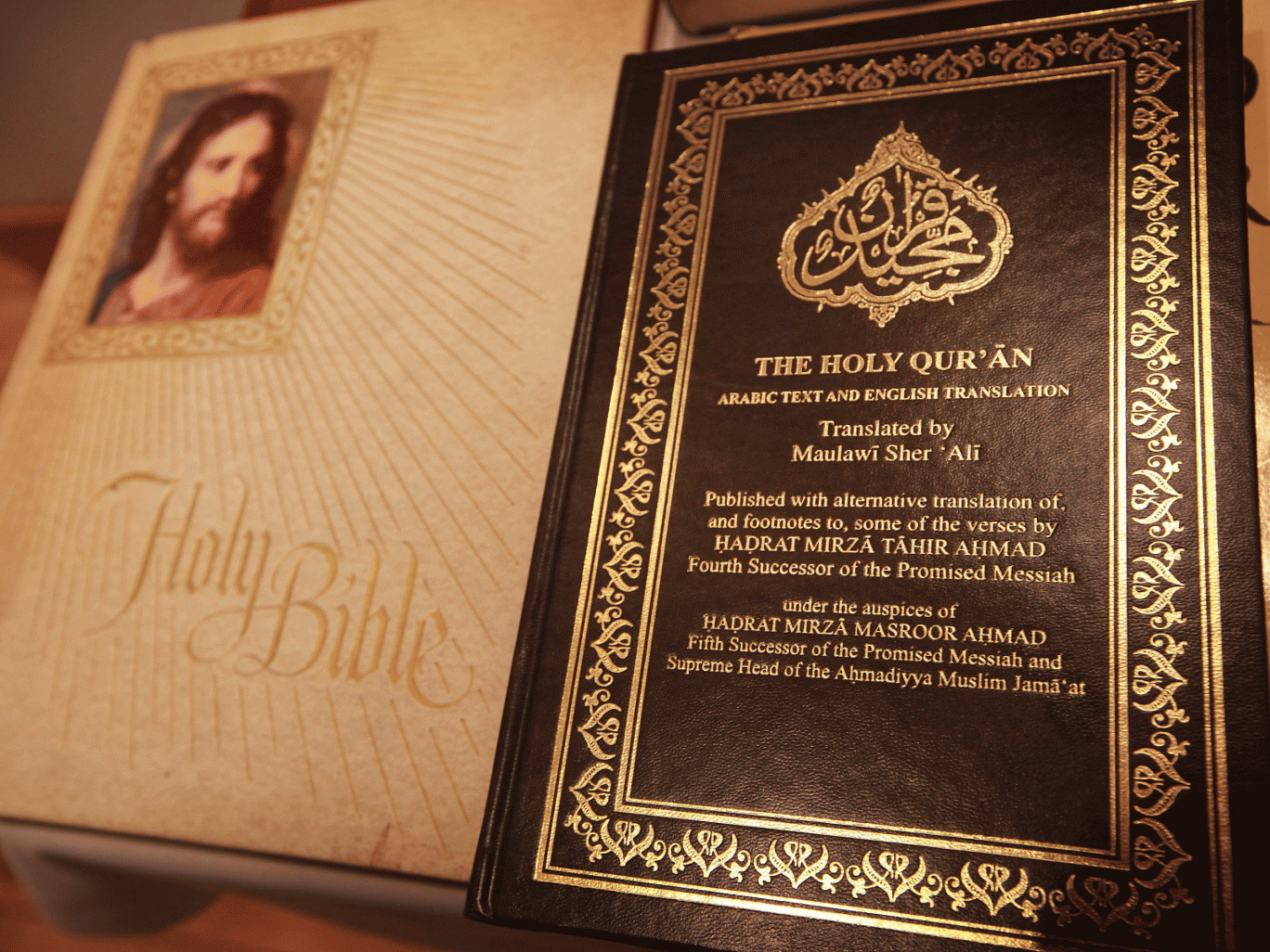The relationship between the Quran and the Bible is a topic of significant interest and discussion among scholars, theologians, and the general public alike. Understanding what the Quran says about the Bible can provide insights into the shared beliefs and theological differences between Islam and Christianity. This article aims to explore the Quranic perspective on the Bible, addressing key themes, verses, and implications for interfaith dialogue.
In the Quran, the Bible is acknowledged as a holy scripture, and its significance is highlighted in several verses. As the followers of both religions seek to understand each other's beliefs, it is essential to approach this discussion with respect and a commitment to uncovering the truth. Throughout this article, we will delve into various aspects of how the Quran references the Bible, the role of previous scriptures, and the implications for believers today.
By examining the connections and distinctions made within the Quran regarding the Bible, we can foster a better understanding of both texts and their followers. This exploration will not only enhance our knowledge but may also promote greater harmony among different faith communities.
- Natalie Portman The Hot Star Of Hollywood
- Twin Flames Universe Understanding The Journey Of Spiritual Connection
Table of Contents
- 1. Introduction to the Quran and the Bible
- 2. The Quran's Acknowledgment of Previous Scriptures
- 3. Key Quranic Verses About the Bible
- 4. The Concept of Revelation in Islam
- 5. Differences Between the Quran and the Bible
- 6. The Role of the Bible in Islamic Theology
- 7. Interfaith Dialogue: Understanding and Respect
- 8. Conclusion
1. Introduction to the Quran and the Bible
The Quran is the holy book of Islam, believed by Muslims to be the literal word of God as revealed to the Prophet Muhammad. The Bible, on the other hand, is a collection of sacred texts in Christianity, consisting of the Old Testament and the New Testament. Both texts hold immense significance for their respective faiths, guiding the beliefs and practices of millions around the world.
Understanding the Quran's perspective on the Bible involves examining various themes, such as the nature of revelation, the role of previous prophets, and the theological implications of their teachings. This exploration can lead to greater understanding and respect between the followers of both religions.
2. The Quran's Acknowledgment of Previous Scriptures
The Quran explicitly acknowledges the existence of previous scriptures, including the Torah (Tawrat) and the Gospel (Injil). These texts are recognized as divine revelations given to earlier prophets, including Moses and Jesus. The Quran emphasizes that these scriptures contained guidance for their respective communities.
Key Points:
- The Quran refers to the Torah and the Gospel as legitimate revelations.
- It acknowledges the prophets associated with these scriptures.
- Muslims are encouraged to respect all previous revelations.
3. Key Quranic Verses About the Bible
Several verses in the Quran reference the Bible directly or indirectly. One of the most notable verses is Surah Al-Ma'idah (5:46), which states:
"And We sent, following in their footsteps, Jesus, the son of Mary, confirming that which was before him of the Torah..."
This verse highlights the Quran's acknowledgment of the Gospel and its connection to the Torah, underscoring the continuity of divine revelation.
Other Relevant Verses:
- Surah Al-Baqarah (2:87) - Discusses the giving of the Torah to Moses.
- Surah Al-Imran (3:3) - Mentions that the Quran confirms the previous scriptures.
- Surah Al-Ma'idah (5:68) - Encourages the People of the Book to stand firm on their scriptures.
4. The Concept of Revelation in Islam
In Islam, revelation is a critical concept that encompasses all divine messages sent to humanity. The Quran teaches that God has sent messengers and prophets throughout history to guide people towards the truth. Each of these prophets received revelations that were appropriate for their time and community.
Understanding Revelation:
- Revelation is viewed as a means of guidance and instruction.
- It is believed that the Quran is the final and complete revelation.
- Previous scriptures are respected but seen as having been altered over time.
5. Differences Between the Quran and the Bible
Despite the Quran's acknowledgment of the Bible, there are significant differences between the two texts. One of the primary distinctions lies in their conception of God and the nature of Jesus Christ.
Key Differences:
- Islam emphasizes the oneness of God (Tawhid), while Christianity teaches the Trinity.
- Jesus is viewed as a prophet in Islam, not the Son of God.
- The Quran is considered the final revelation, while the Bible is seen as a compilation of various writings.
6. The Role of the Bible in Islamic Theology
The Bible holds a unique position in Islamic theology. While Muslims are encouraged to respect the Bible, they also believe that it has undergone changes and alterations over time. This belief leads to the conclusion that the Quran serves as a corrective to previous scriptures.
Implications for Islamic Believers:
- Muslims are encouraged to learn about the Bible while maintaining their beliefs.
- Understanding the Bible can foster interfaith dialogue.
- Respect for previous revelations is a core tenet of Islamic faith.
7. Interfaith Dialogue: Understanding and Respect
Engaging in interfaith dialogue is essential for building bridges between communities of different faiths. Understanding what the Quran says about the Bible can serve as a foundation for respectful discussions about beliefs and values.
Benefits of Interfaith Dialogue:
- Promotes mutual understanding and respect.
- Encourages collaboration on common social issues.
- Fosters a peaceful coexistence among diverse communities.
8. Conclusion
In conclusion, the Quran acknowledges the Bible as a significant scripture and recognizes its role in the religious history of humanity. By exploring the Quran's perspective on the Bible, we can gain a deeper understanding of both texts and their respective followers. This understanding can pave the way for respectful interfaith dialogue and cooperation.
We encourage readers to reflect on the insights gained from this article and to engage in discussions about the relationship between the Quran and the Bible. Your thoughts and comments are welcome, and we invite you to share this article with others who may be interested in exploring this important topic.
Thank you for reading, and we hope to see you back here for more insightful discussions in the future!
- Luke Graham The Rising Star In The World Of Music
- Austin Turner The Journey Of A Rising Star In The Entertainment Industry


